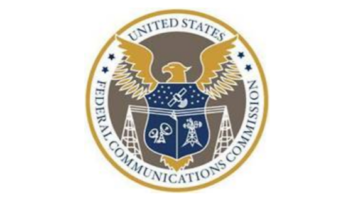The Federal Communications Commission entered into a consent decree with a low-power FM station in Puerto Rico after the station failed to follow several FCC rules. Violations include an unauthorized transfer of control and reassignment, inaccurate comments made in its renewal application, failure to maintain station logs and failure to comply with EAS-related requirements.
Accoding to the FCC summary of the case, the licensee — Iglesia Refugio, Sanidad y Adoracion — filed an application with the Media Bureau asking to renew the license of WODB(LP) in Caguas, P.R., a city founded in 1775 that sits in the central mountain range of the island.
At the time, the licensee certified that the station had not been silent for any period of more than 30 days. But a petition to deny was filed by Miguel A. Melendez claiming a number of transgressions.
He claimed that the station actually had been silent for a time between April 2016 and July 2016; that Iglesia failed to notify the commission of changes to its board of directors; that the station failed to maintain a main studio for the station; that it no longer qualified as a local entity to the town of Caguas; that the station ceased serving the public interest when it stopped airing live programming in July 2016; and that the station did not have any Emergency Alert System equipment and never performed any EAS testing.
As a result, the Media Bureau sent a letter of inquiry to Iglesia asking for detailed information about Iglesia’s organizational and operational status, its board of directors and whether it was in compliance with EAS requirements.
After reviewing documentation submitted by Iglesia, the bureau found a number of issues.
It said Iglesia did violate sections of the Communications Act of 1934 on two occasions. Specifically, the bureau said there was an unauthorized transfer of control when Iglesia joined together with another church (Casa de Encuentro Con Dios Church) in July 2016 to operate the station jointly.
The Media Bureau also discovered that an unauthorized assignment of the station occurred at one of two times: either in November 2018 when the merged churches registered with the Department of State in Puerto Rico as a new nonprofit organization named Ministerio Internacional Casa de Encuentro Con Dios Inc., or in June 2020 when Iglesia asked the government of Puerto Rico to terminate its corporate existence.
The bureau also found that Iglesia violated FCC rules when it claimed in its application that it had not been silent for more than 30 days. The bureau said that the station had been silent for more than a month in 2016. As the rules state, it is the licensee’s responsibility to ensure the accuracy of information on its renewal application. Also, since Iglesia did not submit station log information as the bureau requested, the bureau was not able to confirm that the station successfully maintained station logs. The bureau was also unable to verify if the station has been performing required weekly EAS tests since Iglesia only indicated that EAS equipment “exists in our station.”
The bureau, however, did not agree with all of Melendez’s arguments, including his assessment that Iglesia was required to notify the commission about changes to its board of directors. Under FCC rules, a licensee of an LPFM station only needs to notify the commission when there is a sudden majority board change. Iglesia was not required to report a gradual change, even though, as in this case, those changes end up eventually resulting in a change in the majority of the board’s ownership.
[Related: “Applying for a Low-Power FM Station: Gathering All the Pieces“]
The bureau also rejected an allegation that since Iglesia moved its headquarters to the village of Juncos, which is about eight miles east of Caguas, it failed to maintain its status as a local organization and thus should lose its LPFM license.
Under the rules, the FCC wrote, there are two ways for a nonprofit organization to demonstrate that it is local: one, that its local chapter or branch is physically headquartered or has a campus within 10 miles of the proposed site (for top 50 urban markets) or 20 miles for applicants outside that DMA; or two, that the station has 75 percent of its board members residing within 10 miles for top 50 urban markets or 20 miles for those outside that range. According to the bureau, Iglesia established that his LPFM was local by showing that all its board members resided within 20 miles of the station’s transmitter site. As a result, the change in headquarters did not impact Iglesia’s local status.
The bureau also rejected Melendez’s assertion that the station was no longer serving the public interest because it had not offered live programming since July 2016. Programming that serves the public interest need not be live, the bureau said. It also rejected Melendez’s assertion that Iglesia had failed to maintain a staff and main studio since the award of the construction permit did not require that the licensee meet that pledge.
And the bureau did not find compliance issues as related to the station’s operational history; it said Iglesia had obtained special temporary authority to be silent between April 2016 and July 2016.
The consent decree resolve sthe issues related to the unauthorized transfer of control, the unauthorized assignment of the station’s FCC authorization, the inaccurate certification made in the renewal application and its failure to maintain station logs and to comply with EAS-related requirements. Iglesia agrees to follow a three-year compliance plan.










